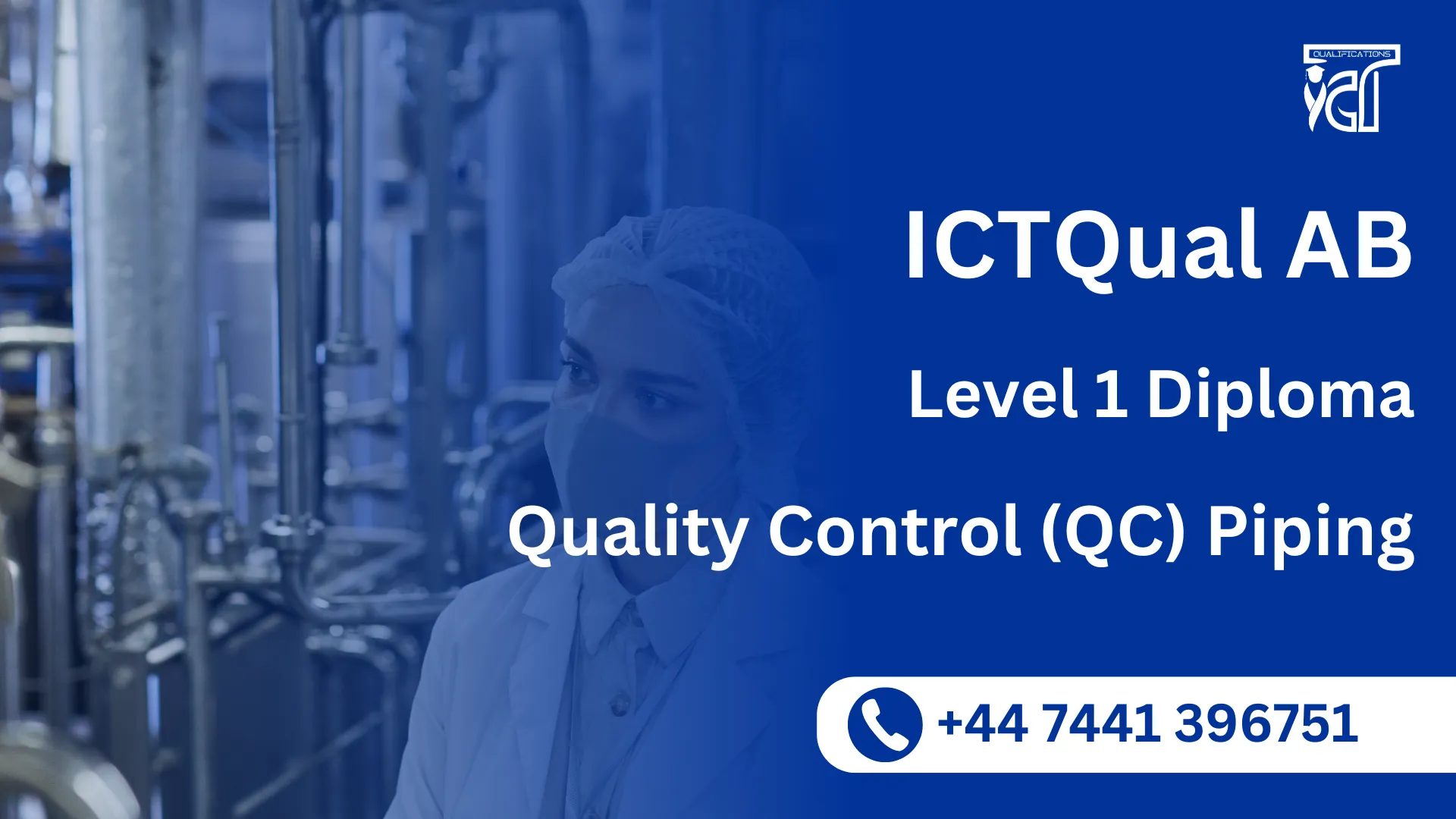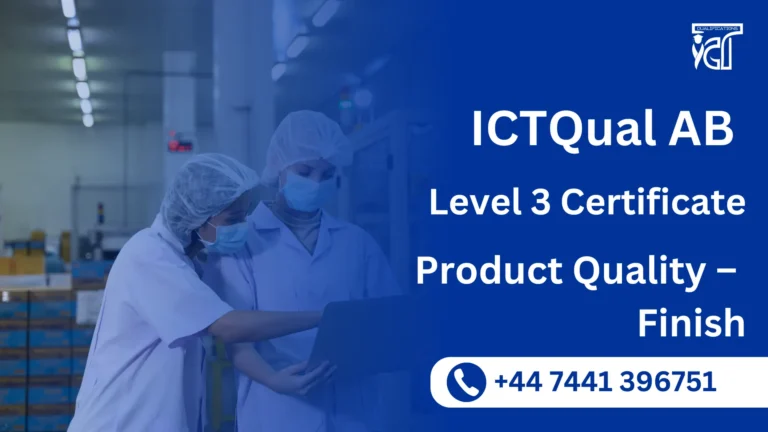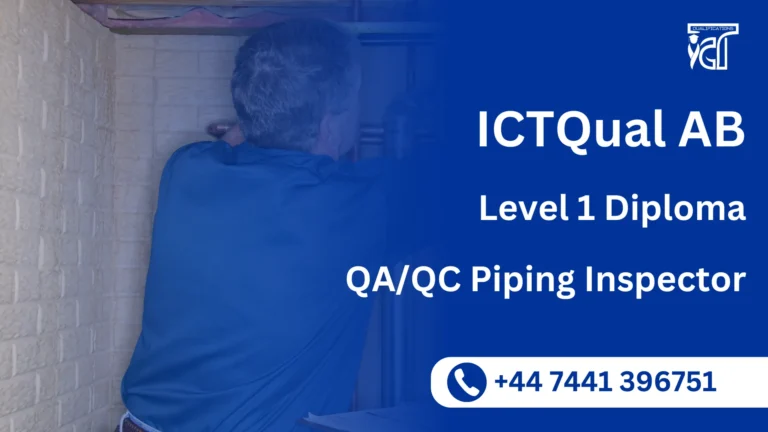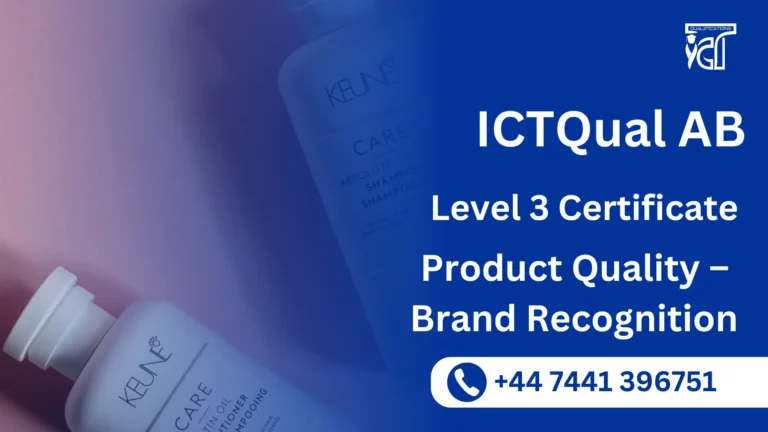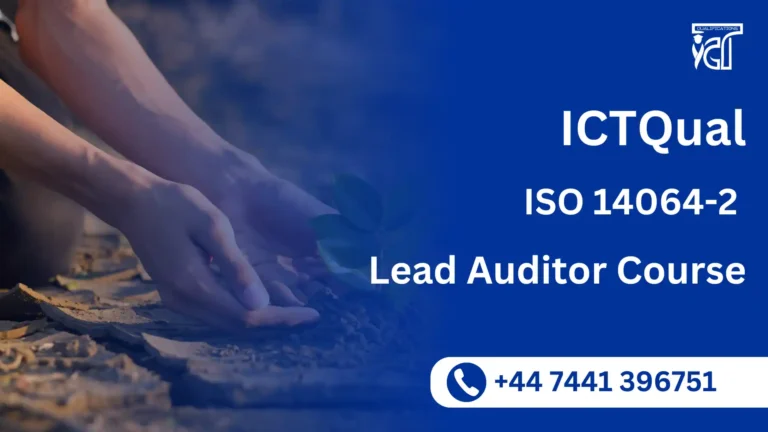The ICTQual AB Level 1 Diploma in Quality Control (QC) Piping is designed as the most accessible entry point for learners who are completely new to the field of piping inspection and quality assurance. This beginner‑level program introduces the very basics of piping systems, safety awareness, and the role of quality control in industrial projects.
Learners will gain simple, foundational knowledge of piping materials, fabrication awareness, and the importance of compliance practices. The course emphasizes understanding rather than technical depth, helping participants build confidence and recognize the essential role of QA/QC in ensuring safe and reliable piping operations.
By focusing on awareness and introductory concepts, the diploma prepares learners to support inspection teams, understand documentation practices, and develop an appreciation for international standards such as ASME, API, and ISO.
Ultimately, the ICTQual AB Level 1 Diploma in Quality Control (QC) Piping provides a strong starting point for beginners. It lays the groundwork for progression to higher‑level diplomas, specialized certifications, and future career opportunities in industries such as oil, gas, petrochemicals, construction, and manufacturing.
ICTQual AB Level 1 Diploma in Quality Control (QC) Piping
This qualification, the ICTQual AB Level 1 Diploma in Quality Control (QC) Piping, consists of 5 mandatory units.
| Sr# | Unit Title |
| 1 | Introduction to Piping Systems and Components |
| 2 | Basics of Quality Control in Piping |
| 3 | Fundamental Inspection Techniques |
| 4 | Safety Practices in Piping Installations |
| 5 | Understanding Piping Materials and Tools |
Learning Outcomes for the Study Units:
1. Introduction to Piping Systems and Components
By the end of this unit, learners will be able to:
- Define the purpose and structure of piping systems used in industrial applications.
- Identify key components such as pipes, elbows, tees, reducers, valves, gaskets, and flanges.
- Interpret basic piping drawings and understand standard symbols and layouts.
2. Basics of Quality Control in Piping
By the end of this unit, learners will be able to:
- Explain the principles and importance of quality control in piping projects.
- Describe the stages of quality assurance throughout the piping lifecycle.
- Recognise common quality documentation, including inspection plans, test reports, and compliance records.
3. Fundamental Inspection Techniques
By the end of this unit, learners will be able to:
- Apply basic inspection methods such as visual inspection and dimensional checks.
- Identify weld defects and surface irregularities using standard inspection tools.
- Document inspection findings accurately in accordance with industry guidelines.
4. Safety Practices in Piping Installations
By the end of this unit, learners will be able to:
- Describe essential health and safety protocols during piping inspection and installation.
- Recognise typical workplace hazards in piping environments and how to mitigate them.
- Demonstrate correct use of personal protective equipment (PPE) and adherence to safe working practices.
5. Understanding Piping Materials and Tools
By the end of this unit, learners will be able to:
- Identify various piping materials such as carbon steel, stainless steel, and plastic piping.
- Understand the properties and applications of materials used in different industrial conditions.
- Select and use basic tools and instruments required for quality control and inspection activities.
The ICTQual AB Level 1 Diploma in Quality Control (QC) Piping is designed as the most accessible entry point for learners who are completely new to the field. It introduces the basics of piping systems, safety awareness, and the role of quality control in industrial projects, making it ideal for beginners.
Technical Competence
- Basic awareness of piping systems and their importance in industrial projects
- Introduction to fabrication processes and simple inspection concepts
- Early exposure to international standards such as ASME, API, and ISO
- Understanding of safety and compliance principles in piping operations
- Ability to assist with documentation and reporting tasks in QA/QC teams
Professional Growth
- Entry into QA/QC support roles at the most junior level
- Recognition through an internationally benchmarked qualification
- Foundation for progression to Level 2 and higher diplomas in QC Piping
- Improved employability in industries such as oil, gas, petrochemicals, and construction
- Opportunity to begin building a career pathway in piping inspection and quality assurance
Industry Relevance
- Alignment with industry practices in piping and fabrication projects
- Contribution to safe and reliable operations through awareness of QA/QC principles
- Exposure to practical scenarios and case studies for applied learning
- Ability to support audits, inspections, and compliance activities under supervision
Personal Development
- Confidence to start a career in piping QA/QC
- Curiosity and motivation to learn technical subjects
- Commitment to safety and compliance practices
- Attention to detail in inspection and documentation tasks
- Preparation for continuous learning and higher qualifications
The ICTQual AB Level 1 Diploma in Quality Control (QC) Piping is designed as the most accessible entry point for learners who are completely new to the field. The ideal learner is someone motivated to gain awareness of piping systems, safety practices, and the role of quality control, with no prior technical background required.
Technical Background
- Beginners with no prior industry experience
- School leavers or early‑career participants seeking their first qualification in QA/QC
- Learners with a general interest in science or technical subjects
- Individuals curious about piping systems and industrial safety practices
- Candidates eager to understand the basics of quality control in industrial projects
Career Aspirations
- Learners aiming to enter QA/QC support roles at the most junior level
- Individuals seeking recognition through an internationally benchmarked qualification
- Candidates preparing for progression to the ICTQual AB Level 2 Diploma in QC Piping
- Participants motivated to build a career pathway in piping inspection and quality assurance
- Early‑career learners seeking employability in oil, gas, petrochemical, and construction sectors
Personal Qualities
- Curiosity and willingness to learn technical subjects
- Commitment to safety and compliance practices
- Attention to detail in inspection and documentation tasks
- Adaptability to diverse industrial environments
- Motivation to pursue higher qualifications and continuous professional development
The ICTQual AB Level 1 Diploma in Quality Control (QC) Piping provides the most accessible entry point into piping inspection and QA/QC. It builds awareness of piping systems, safety practices, and compliance principles, preparing learners for structured advancement into higher‑level diplomas and industry roles.
Academic Progression
- Progression to ICTQual AB Level 2 Diploma in Quality Control (QC) Piping)
- Eligibility for further study in QA/QC, welding inspection, or piping engineering after advancing levels
- Opportunity to pursue specialized certifications such as ASME, API, ISO, and NDT Level II once higher diplomas are completed
- Preparation for structured learning routes in project quality management and industrial safety
- Foundation for higher‑level studies in inspection and quality assurance disciplines
Career Progression
- Entry into junior QA/QC support roles in piping, fabrication, and inspection projects
- Opportunities to work as assistants or trainees in oil, gas, petrochemical, and construction sectors
- Employability in industries such as manufacturing and power generation
- Foundation for supervisory responsibilities after progression to higher diplomas and gaining industry experience
- Increased career mobility through an internationally benchmarked qualification
Professional Development
- Recognition as a qualified learner with industry‑relevant awareness
- Ability to support audits, inspections, and compliance activities under supervision
- Development of technical confidence for real‑world industrial projects
- Access to continuous professional development programs and industry workshops
- Strengthened profile for progression into advanced certifications and diplomas
Entry Requirements
Learners must meet the following criteria to be considered for admission into the course:
- Age Requirement: Minimum age of 18 years or above
- Educational Background: Completion of basic secondary school education or equivalent. No prior technical qualifications are required, making this course accessible to beginners
- Work Experience: No industry experience is required. Suitable for school leavers, early‑career participants, or individuals starting their journey in piping inspection and QA/QC
- English Language Proficiency: Basic ability in spoken and written English is required, as the program is delivered in English. International learners may be asked to demonstrate proficiency at CEFR A1–A2 level or equivalent
Register Now
Qualification Process
Qualification Process for the ICTQual AB Level 1 Diploma in Quality Control (QC) Piping
- Self-Assessment:
Begin by evaluating your eligibility to ensure you meet the qualification requirements, including work experience, knowledge, and language proficiency. - Registration:
Complete your registration by submitting the required documents, including a scanned copy of a valid ID, and paying the registration fee. - Induction:
An assessor will conduct an induction to confirm your eligibility for the course and explain the evidence requirements. If you do not meet the criteria, your registration will be cancelled, and the fee will be refunded. - Assignments & Evidence Submission:
Provide all assignments and the necessary evidence based on the assessment criteria outlined in the course. If you are unsure of the required evidence, consult with the assessor for guidance on the type and nature of evidence needed. - Feedback and Revision:
The assessor will review your submitted evidence and provide feedback. Evidence that meets the criteria will be marked as “Criteria Met,” while any gaps will be identified. You will be asked to revise and resubmit if needed. - Competence Evidence:
Submit final evidence demonstrating that all learning outcomes have been met. This evidence will be marked as “Criteria Met” by the assessor once it is satisfactory. - Internal Quality Assurance (IQA):
The Internal Quality Assurance Verifier (IQA) will review your evidence to ensure consistency, quality, and compliance with standards. - External Verification:
The IQA will submit your portfolio to ICTQUAL AB External Quality Assurance Verifiers (EQA) for final confirmation. The EQA may contact you directly to verify the authenticity of your evidence. - Certification:
Upon successful completion of all checks, ICTQUAL AB will issue your official certificate, confirming that you have attained the ICTQual AB Level 1 Diploma in Quality Control (QC) Piping

